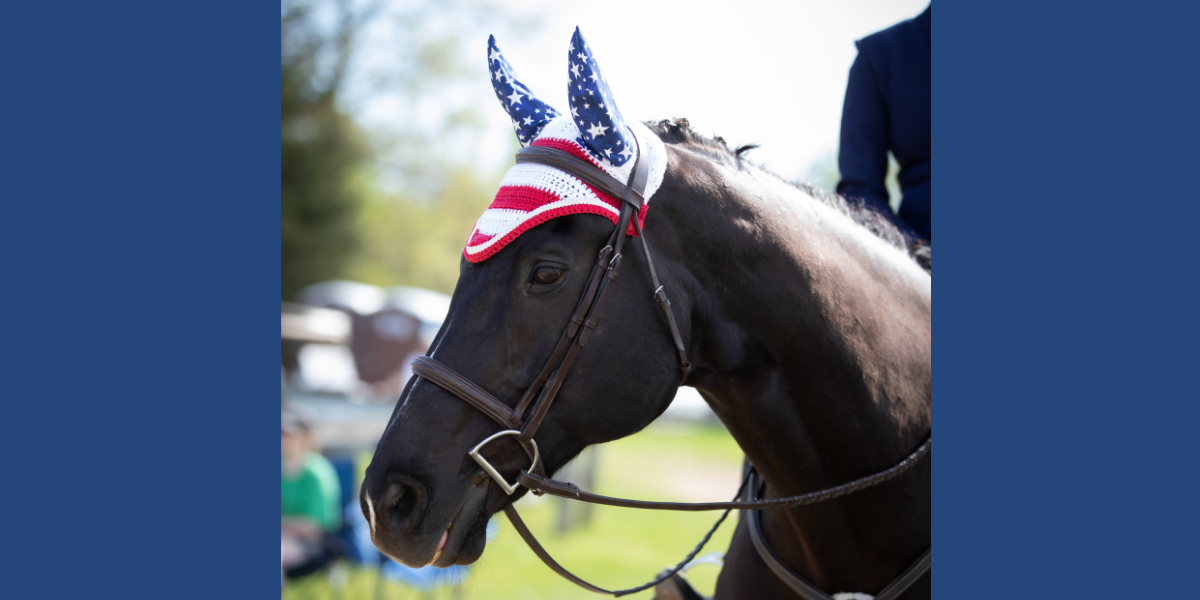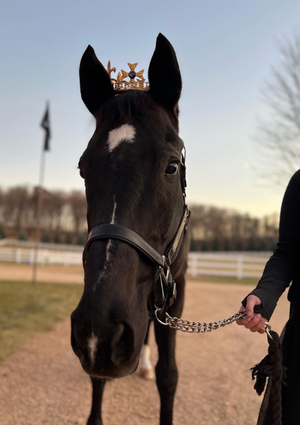Against all odds
Henry the horse defies fate and bucks a typically fatal gastrointestinal diagnosis

Henry the horse defies fate and bucks a typically fatal gastrointestinal diagnosis
Henry, a 19-year-old thoroughbred, was diagnosed with a potentially fatal tear in his intestinal wall.
For four years, a horse named Henry has been a bright spot in the life of Elena Fayfield. The 19-year-old thoroughbred is stoic in nature but always has a kiss and cuddle for Fayfield.
The pair share a special bond, one that was almost broken when a serious medical condition put Henry in the hospital and against the odds fighting for his survival.
The trouble started in February 2023, when Elena’s trainer, Rachel Wolf, noticed Henry began showing signs of colic early one morning. A check by his usual veterinarian, Dr. Anna Renier, found symptoms consistent with colonic displacement, meaning Henry’s bowels were in an abnormal position.
After treatment in the field didn’t relieve his symptoms, Henry was referred to Piper Equine Hospital at the University of Minnesota College of Veterinary Medicine. At the time of his admission, Henry was no longer displaying signs of colic, but tests did reveal signs of infection in his abdomen. Exploratory surgery the next day revealed a more dire problem.
Henry’s intestine had a small perforation, or tear, which was leaking its contents into the horse’s body cavity. Often in cases where a perforation is found, euthanasia is the recommended course of action, according to resident Dr. Cally Berg, who worked on Henry’s case alongside Dr. Christie Ward.
Unlike a human or small animal such as a dog, a horse’s body cavity is expansive and nearly impossible to decontaminate at a level that would prevent future infection and other issues. As a result of the tear, Henry also developed peritonitis, which is an inflammation of the lining abdomen. Luckily for him, his perforation was tiny, and his care team members thought there was a chance they could save him.
“This perforation was so small that our surgeons thought that they could take out part of the small intestine and have him recover—but it would be a very long and difficult recovery for him,” Berg says.

The surgery would be a longshot, but Fayfield was willing to try if it meant saving her dear horse, who she affectionately refers to as King Henry. In the end, the surgery led by Dr. Nicolas Ernst was successful, and recovery would be the next step for Henry, which included administering a host of medications, plasma, and fluids as well as plenty of rest.
An unwelcome but not unexpected complication arose after surgery when Henry developed endotoxemia, a severe immune response to bacteria that escaped his bowel through the perforation. Luck was again in Henry’s favor as his case of endotoxemia was mild and treatable.
Two weeks after his admission to Piper Equine Hospital, Henry walked out the door and back to his life with Fayfield.
“He really did defy the odds,” Berg says. “We couldn't even give his owners odds. When we were talking to them, we said it would be really generous to say that he had a 50/50 shot. That they were willing to take the chance on him was absolutely amazing.”
In the three months that followed, Henry had to take things easy to allow his body to continue healing. Life has slowly gotten back to normal for him, and Fayfield is thrilled to have her companion back at her side.
“I didn't think Henry would ever come home again, but all of the vets made it happen and were the absolute best people for the job,” she says. “I couldn’t be more grateful.”